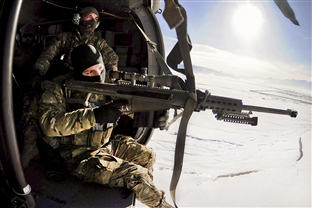A study done by Skotak, M., et al. (2019) measured the blast overpressure exposures of law and military snipers during a 3 day training event. [1]
There were 20 subjects. 13 used a 0.50 caliber sniper rifle equipped with 29” long barrel. 7 used a 20” long barrel.
Ammunition was either M33 ball or Hornady 750 gr A-Max.
Positioning for data collection:
52% in prone using 29” barrel
13.6% prone using 20” barrel
9.9% standing
9.4% window
5.2% tower
4.4% kneeling
5.4% other positions
The 20” barrel had a higher peak overpressure than the 29” barrel. The peak overpressure for the 20” barrel was 5.85 psi and the 29” barrel had a peak overpressure of 4.55 psi.
Current blast overpressure safety thresholds per the U.S. Department of Defense is 4 psi. [2]
The number of exposures per day, per trainee ranged between 4 and 27.
The number of exposures per hour per person ranged from 2 to 17.
The number of consecutive rounds fired within a 1-minute period was 1 to 8.
The cumulative number of exposures per trainee ranged between 24 and 50.
The authors noted that barrel length plays a role in pressure, but proper muzzle device selection may be a significant step in reducing these pressures.
References:
- Skotak, M., LaValle, C., Misistia, A., Egnoto, M. J., Chandra, N., & Kamimori, G. (2019). Occupational blast wave exposure during multiday 0.50 caliber rifle course. Frontiers in neurology, 10, 797.
- https://media.defense.gov/2024/Aug/09/2003521276/-1/-1/1/DEPARTMENT-OF-DEFENSE-REQUIREMENTS-FOR-MANAGING-BRAIN-HEALTH-RISKS-FROM-BLAST-OVERPRESSURE-OSD005281-24-RES-FINAL.PDF
